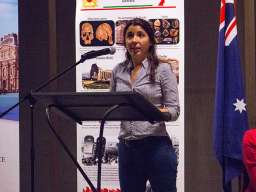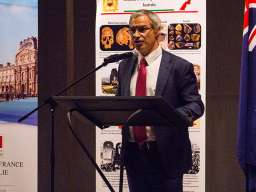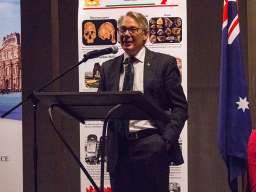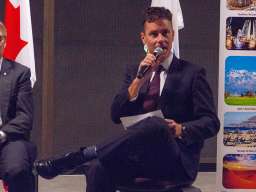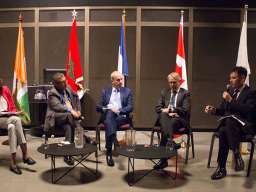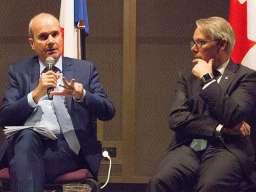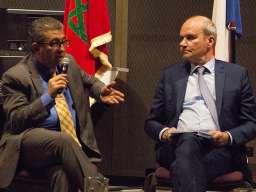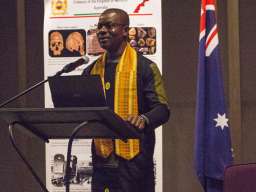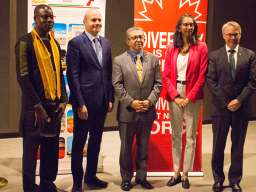More than the sum of its parts
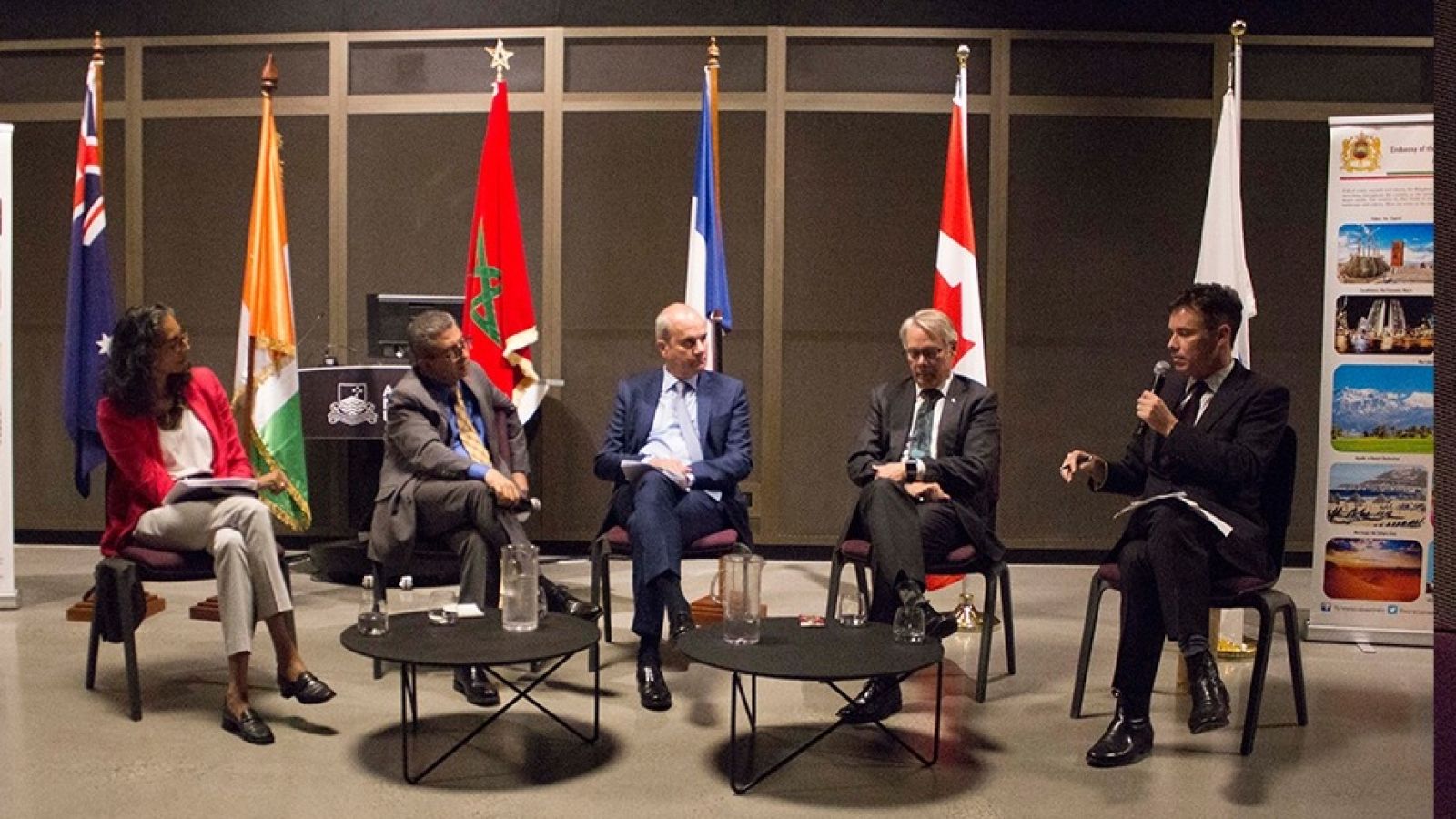
Against the global backdrop of threats to liberal democracy and questions over the relevancy of multilateralism, a topical panel discussion was convened at the ANU as part of Francophonie Week.
The week celebrates the French language – of which there are over 300 million speakers – and Francophone culture. Ambassadors for the French-speaking countries of France, Morocco and Canada, along with a representative from the Australian Department of Foreign Affairs and Trade (DFAT), discussed the subject: Can l’Organisation Internationale de la Francophonie be a tool for multilateralism?
Organisation Internationale de la Francophonie (OIF), or the International Organisation of La Francophonie, turns 50 next year and comprises 88 members states and governments. His Excellency Mr Christophe Penot, the Ambassador of France to Australia, described the OIF as an independent political organisation – but not an organisation that produces norms or standards.
“It’s more like a tool of influence for all of us,” His Excellency Penot told the audience.
“Above all, it's family. You must see it as a family.”
He went on to outline the characteristics of this family: diversity (“we are on five continents”), unity of vision (“of the world that we share”), culture, and education.
His Excellency Mr Paul Maddison, the High Commissioner of Canada to Australia, explained how this role plays out: “If you're a developing nation state or not as affluent a nation state as many others, you can be forgiven for feeling alone and afraid from time to time watching as super power contestability continues to evolve in ways that make us all feel uncomfortable,” he said.
“This is when you need families to come together to reassure one another and to find ways to strengthen relationships based on common values and common aspirations for our children and grandchildren.”
The legitimacy of Francophonie, said Ambassador of Morocco to Australia His Excellency Mr Karim Medrek, is about the values and the ideas of the Francophonie.
“The effectiveness of the Francophonie comes from its soft power,” His Excellency Medrek continued. “Francophonie is more education, language than politics and economy.”
“We believe, as Morocco does, that Francophonie can contribute to make this world better.”
Discussion moderator, journalist David Wroe cited present day turbulences. The Defence and National Security Correspondent for The Age and Sydney Morning Herald noted that we live in a time of considerable change, including power shifts around the world, with some nations “patchily realising their potential but still facing challenges”.
“Many say liberalism is in retreat, and there are frequent attacks on globalism and multilateralism, including from some surprising quarters,” he added.
Mr Roe referenced the recent Christchurch mosque shootings, saying that “the scourge of extremism has expressed itself in the most shocking terms right next door with our dear neighbour New Zealand.”
“It's fair to say we need positive global cooperation now more than ever.”
Ms Gita Kamath, Assistant Secretary of the Africa Branch at DFAT concurred with Mr Roe.
“It's at these times when the international system is under such strain that the value and relevance of organisations with such diverse memberships like the Francophonie are absolutely essential,” she said, “because it provides this ballast and resilience in the international system.”
“When you have diverse memberships, which are founded on relationship-building and dialogue, these are really critical to ensure that voices of all these countries – some of them very small, vulnerable, poor – are heard.”
This, Ms Kamath suggested, could help us deal with growing nationalism and rising inequality between countries.
In representing the Australian voice on the panel, Ms Kamath acknowledged that Australia is not a member of the OIF, but that our country has an enduring affinity and affection for the French language – as evidenced by its hosting of the 30th anniversary of the Alliance Francaise French Film Festival in Australia; the biggest festival dedicated to French cinema outside France.
“For Australia, multilateralism is important because it provides a framework to support what we call a rules-based international order,” she said. “This is a priority that has been highlighted in the Foreign Policy White Paper.”
She continued that Australia is not a big enough player in the world to set the rules, or to ignore them.
“As my colleagues have said before me, we are a community or family of nations,” Ms Kamath said. “So we need to engage and form partnerships with other countries [...] to support multilateral rules and institutions that promote cooperation, support universal human values, human rights, and allow us to respond to global challenges that can only be addressed through collective action.
In addressing the statement by Mr Wroe that the world’s two leading Anglophone countries are presently facing political difficulties, His Excellency Maddison asserted that the current situation is why multilateral organisations are more vital now perhaps than ever before – and that the OIF in 2019 is more important than it has been in the first 48 years.
“We still are finding the time as governments, as senior officials, to focus on the Francophonie, on the Commonwealth, on the G7, G20, [and other multilateral organisations] because we absolutely are committed to not taking our eye off the ball at this particular important, historical inflection point,” he said.
Citing another historical inflection point, Ms Kamath had earlier talked about the founding of UNESCO after the Second World War, and how it had been created with a very specific vision.
“[It was] a founding vision that since war begins in the minds of men and women, it's in the minds of men and women that the defences of peace must be constructed,” she said.
“It's important that we have organisations such as the Francophonie [...] to build that peace in the minds of men and women through dialogue, mutual understanding, and acceptance of our diversity.”
Following the panel discussion, Mr Florent Galaty, Director for Francophonie and cultural cooperation at the Ministry for Culture and Francophonie of the Ivory Coast delivered a presentation in French titled Francophonie et développement des pays membres: le cas de la Cote d'Ivoire.
The Francophonie Week event was co-organised by Lecturer in French Dr Solène Inceoglu from the ANU School of Literature, Languages and Linguistics, in conjunction with the Embassy of France In Australia.
